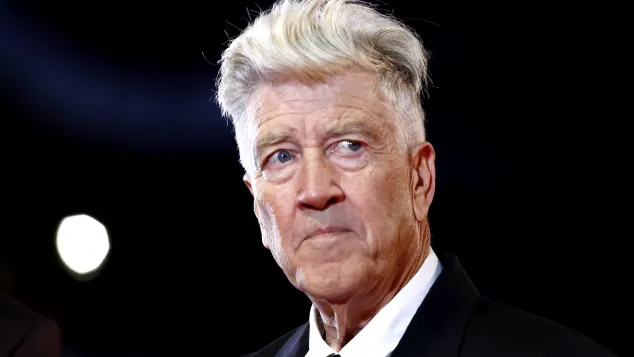Director David Lynch, the iconic filmmaker, reveals his struggle with emphysema due to lifelong smoking. Diagnosed in 2020, Lynch now requires supplemental oxygen and urges others to quit smoking to avoid his fate.
- David Lynch opened up on his smoking history
- He has an emphysema diagnosis and several lifestyle changes
- THIS is Lynch's message to smokers
Lynch's smoking history and health impact
Renowned filmmaker David Lynch has opened up about the severe consequences of his lifelong smoking habit. Starting at just eight years old, Lynch's relationship with tobacco became intrinsic to his identity as a creative. However, this long-standing habit has now left him reliant on supplemental oxygen for even the shortest of walks.
In August, the director of 'Twin Peaks' disclosed his emphysema diagnosis, a chronic lung condition that severely restricts breathing. He noted on X, "I enjoyed smoking very much... but there is a price to pay for this enjoyment, and the price for me is emphysema."
Lynch's battle with emphysema has drastically altered his life. In an interview with 'People' magazine, he described his struggle, stating, "I can hardly walk across a room. It’s like you’re walking around with a plastic bag around your head."
Despite numerous attempts to quit smoking over the years, Lynch admitted that the habit was deeply ingrained in his lifestyle as a filmmaker and artist. It wasn't until two years after his emphysema diagnosis in 2020 that he successfully quit smoking.
Lynch said he had tried to quit "many, many times" over the years. "But when it got tough, I’d have that first cigarette, and it was a one-way trip to heaven. Then you’re back smoking again."
Even after he was diagnosed with emphysema in 2020, he didn’t kick the habit for two more years. "I saw the writing on the wall and it said, ‘You’re going to die in a week if you don’t stop,’" Lynch told 'People'. "I could hardly move without gasping for air. Quitting was my only choice."
These days Lynch is mostly homebound, wary of catching infections that might exacerbate his disease. It has made working on set impossible, though he has said he is open to directing remotely in the future.
While he admits the price he has paid for smoking is great, Lynch told People that he did not "regret it", but wanted others to learn from his experience: "I really wanted to get this across: Think about it. You can quit these things that are going to end up killing you."
Now mostly confined to his home to avoid infections that could worsen his condition, Lynch hopes to direct remotely in the future. His last major project was the 2017 'Twin Peaks' reboot.
A look back at a wonderful career
David Lynch is a filmmaker known for his surreal and often unsettling approach to storytelling. His career began in the 1970s with his feature debut, the avant-garde and darkly poetic 'Eraserhead', a film that quickly established him as a singular voice in American cinema.
The film, with its bizarre imagery and nightmarish atmosphere, became a cult classic and set the tone for much of his later work. Lynch’s distinct visual style—marked by stark contrasts, surreal imagery, and a hauntingly atmospheric use of sound—would become a hallmark of his films.
His follow-up, 'The Elephant Man', marked a more mainstream success, garnering critical acclaim and several Oscar nominations despite the director’s usual departure from conventional storytelling. In the 1980s and 1990s, Lynch continued to carve out his unique space within Hollywood, combining elements of noir, horror, and psychological drama.
His film 'Blue Velvet' is often regarded as one of his finest works, exploring the darkness beneath the surface of suburban life with a disturbing and surreal narrative. The film earned Lynch both critical praise and controversy, cementing his reputation as a filmmaker unafraid to confront uncomfortable subjects.
In 1990, Lynch expanded his influence with the groundbreaking television series 'Twin Peaks', which blended mystery, melodrama, and supernatural elements in ways that had never been seen before on TV. The show’s blend of the ordinary and the strange captured the public's imagination and became a cultural phenomenon, later continuing in 2017 with the return of 'Twin Peaks: The Return'.
Throughout the late 1990s and 2000s, Lynch's films became even more experimental. Works like 'Lost Highway', 'Mulholland Drive', and 'Inland Empire' explored the complexities of identity, memory, and reality, often in non-linear and fragmented structures that left audiences to piece together their own interpretations.
While 'Mulholland Drive' earned him widespread acclaim and a Best Director nomination at the Academy Awards, his later works remained polarizing, as Lynch increasingly embraced abstraction over conventional plot. Despite the commercial and critical challenges, Lynch’s commitment to his singular vision has made him a key figure in the world of contemporary cinema, and his films continue to inspire both admiration and intrigue for their unique, enigmatic qualities.
Also interesting:
Despite the toll smoking has taken, Lynch does not harbor regrets but wants others to learn from his experience. He urges smokers to consider the potential consequences. Take it from a legend!
Just don't do it!





